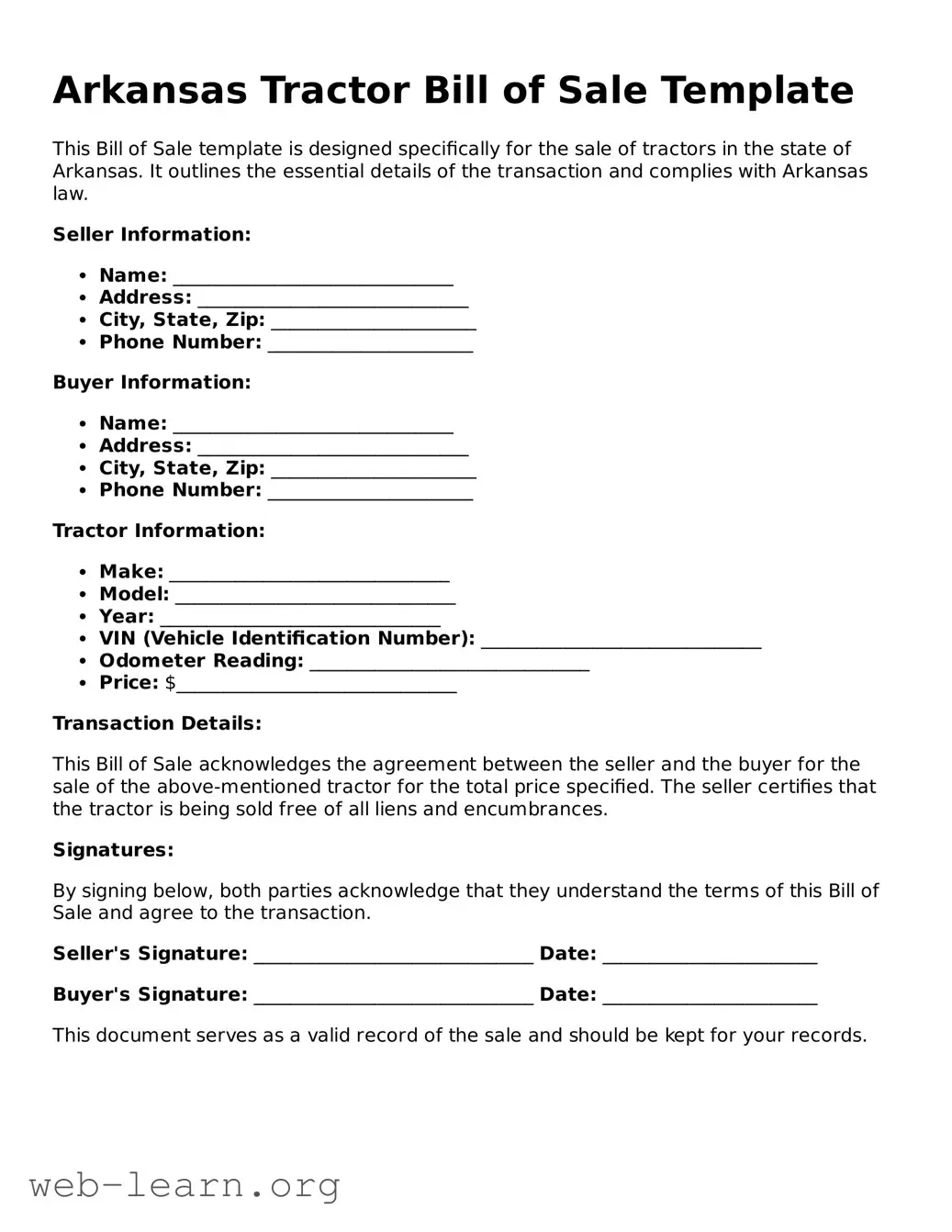Arkansas Tractor Bill of Sale Template
This Bill of Sale template is designed specifically for the sale of tractors in the state of Arkansas. It outlines the essential details of the transaction and complies with Arkansas law.
Seller Information:
- Name: ______________________________
- Address: _____________________________
- City, State, Zip: ______________________
- Phone Number: ______________________
Buyer Information:
- Name: ______________________________
- Address: _____________________________
- City, State, Zip: ______________________
- Phone Number: ______________________
Tractor Information:
- Make: ______________________________
- Model: ______________________________
- Year: ______________________________
- VIN (Vehicle Identification Number): ______________________________
- Odometer Reading: ______________________________
- Price: $______________________________
Transaction Details:
This Bill of Sale acknowledges the agreement between the seller and the buyer for the sale of the above-mentioned tractor for the total price specified. The seller certifies that the tractor is being sold free of all liens and encumbrances.
Signatures:
By signing below, both parties acknowledge that they understand the terms of this Bill of Sale and agree to the transaction.
Seller's Signature: ______________________________ Date: _______________________
Buyer's Signature: ______________________________ Date: _______________________
This document serves as a valid record of the sale and should be kept for your records.
